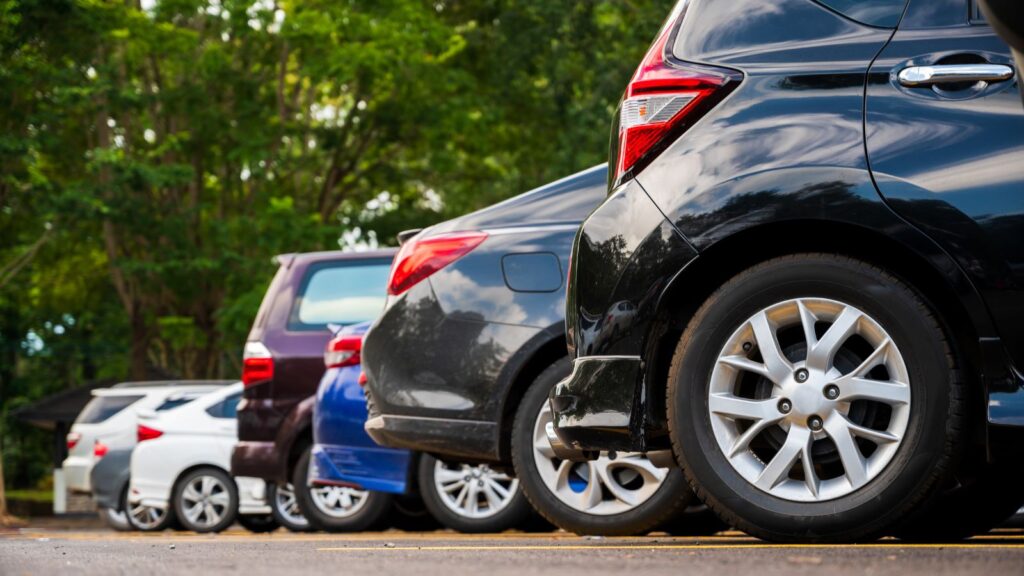With approximately 20% of vehicular collisions happening in parking lots in the US, studies suggest that it can be just as dangerous as the roadways if you’re not careful.
It’s totally understandable to feel frustrated and upset when you find your car with a fresh dent or scratch, but you have to stay calm and collected because panicking won’t help.
There is a lot to deal with when someone has hit your parked car, like gathering evidence, contacting authorities and dealing with insurance claims. Here is a guide you can go through that guarantees a smooth process to protect your interests.
Assess the Damage
You must first examine your car. Check for any scratches or dents and other visible signs of impact. Be thorough in your inspection so you won’t miss anything because it is important to cover all your bases.
Check all the lights in the car, as bulbs can sometimes dislodge or break after a minor collision. See if there is any fluid leakage, like oil, coolant, or brake fluid, because this just means your car sustained more serious damage that needs immediate attention.
Inspect the engine compartment for any visible damage, and look for things like bent or broken parts, loose wires, or leaking fluids.
A quick inspection of your vehicle helps you understand the true impact inflicted by the collision. This way, you will also know what the appropriate course of action is to address the issue.

Collect Evidence
After checking your car for the damages, you can now gather evidence to support your potential insurance claim and legal actions by taking pictures of the aftermath of the incident. Make sure that all angles are covered, with close-up shots of the points of impact to show evidence of scratches and dents, and all the relevant damages that your car incurred.
Document the surrounding area as well, and note the relevant details like road conditions, signage, and even nearby landmarks.
Gather witness accounts after an accident. Get the details from those who saw it; their version of events could be vital for your claims. Find out if there were security cameras around that captured the incident. If there is, contact the property owner to request access to the footage and add this to your collected evidence.
Note the details of the incident on paper, with the time, the date and exact location, including a brief description of your accounts of what happened as reference when you report this to your insurance company and when you seek for legal advice.
Contact Your Insurance Company
Your insurance company must be informed immediately to process your claims as early as possible.
Once you have given them the information needed, like the exact time and location of the incident, the damages to your car, and the information of the other party involved, your insurance agent will guide you on the next steps to do. This may involve scheduling an assessment of the damage to your vehicle.
Have your policy information ready to speed up the process of your claim. Be honest when providing information about the incident. This will guarantee a smooth process for your claims. After the insurance company reviews the details of your claim, they will then advise you on the coverage applicable to your situation. You may need to pay a deductible before repairs to your car can begin, depending on the terms of your policy. In this case, keep all your communication with the insurance company for future reference.
File a Police Report
Report the incident to the local authorities and cooperate with them when answering all their questions. The officers must be informed of the necessary details about the collision, including the time and date, contact details of the witnesses, and any information about the vehicle that hit yours.
This report can be used as evidence for your potential claims and in any legal proceedings that will follow. Even if the damage caused seems minor, obtaining police reports is important because they are official documents that you can use to support the credibility of your case, so do not skip this step.
Seek Professional Assistance
Anyone can feel lost when they find themselves in an unexpected incident, like a minor fender bender, but that is when a legal expert can come in handy to help with the legal process.
Insurance companies have a team of experts that can handle such cases, so contacting them should be one of the first steps you must do after the incident.
In case your car sustained significant damage, reach out to experts in car accident law who can guide you through the whole process and negotiate with the insurance companies on your behalf and even represent you in court if needed. Your lawyer can ensure that you get the compensation you deserve for all those unpleasant damages.
Conclusion
Do not stress over your car when it gets hit in the parking lot. Instead, calmly assess the situation and seek assistance from professionals who can help you deal with legal processes. Your safety is the main priority!


More Stories
How Landscaping Businesses Can Cut Costs and Boost Cash Flow
5 Costly Mistakes After a Business Vehicle Crash
Bringing architectural ideas to life before they’re built